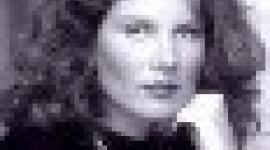Thought Field Therapy
Dr. Frank Patton is a psychologist who specializes in Thought Field Therapy (TFT). This technique reportedly eliminates emotional distress and gives immediate relief for PTSD, addictions, phobias, fears and anxieties.
Phyllis is our support group manager as well as a host for one of the anxiety disorders support groups on our site. She has been coping with moderate to severe anxiety for some time and has tried "Thought Field Therapy" with Dr. Patton.
David Roberts: HealthyPlace.com moderator.
The people in blue are audience members.
Online Conference Transcript
David: Good Evening. I'm David Roberts. I'm the moderator for tonight's conference. I want to welcome everyone to HealthyPlace.com.
Our topic tonight is "Thought Field Therapy." We have two guests - psychologist, Frank Patton, Psy.D. and Phyllis, who has tried "Thought Field Therapy" and will provide us with a first-hand account of her experience with it. Dr. Patton has a Doctor of Psychology degree from Baylor University. He is one of fourteen professionals worldwide trained in the use of TFT Voice Technology, the highest and most advanced level of TFT training. Dr. Patton also currently serves as a consultant nationwide to residential treatment programs for adolescents and their families.
Thought Field Therapy (TFT) is supposedly a safe and effective technique for the elimination of emotional distress. It reportedly gives immediate relief for PTSD, addictions, phobias, fears and anxieties by directly treating the blockage in the energy flow created by a disturbing thought pattern. It's proponents say it virtually eliminates any negative feeling previously associated with a thought.
Good evening, Dr. Patton, and welcome to HealthyPlace.com. Thank you for joining us tonight. Can you please tell us a bit more about yourself and how you got into "Thought Field Therapy?"
Dr. Patton: After trying all treatment modalities, thought field therapy has emerged as the most powerful and effective. Working with adolescents in a treatment facility, we were pressed to find effective methods of dealing with explosive behavior and also the many traumas in their lives. We were interested in finding an effective treatment that would help them to overcome their anger and out-of-control behavior, thus we found thought field therapy.
David: In layman's terms, can you explain how "Thought Field Therapy" works?
Dr. Patton: TFT is a gentle tapping method along the energy meridians of the body to eliminate negative emotions that are trapped in the thought field and can be released and then eliminate the root of the problem.
David: For the audience, here's a slightly more detailed explanation: The therapist asks a person to think about a situation or event and rate how uncomfortable they feel at the moment on a scale from one to ten; where ten is the worst you can feel and one is no trace of the problem. Then, at the direction of the therapist, the patient taps with two fingers on various acupressure points on the body. During this process, the patient rates how they feel. The tapping is done according to a prescribed recipe pattern (algorithm). The algorithm is based on the particular emotions elicited by the upset. After the series of tapping, which takes only five to six minutes, the treatment is complete and the distress is reportedly eliminated.
First of all, what types of disorders is TFT effective with?
Dr. Patton: Any negative emotions such as anger, depression, anxiety, fear, guilt, obsessive thinking - any emotional problem that has distress attached to it can be treated with TFT.
David: I know that TFT has only been around for about 20 years, a relatively short period of time compared to other forms of therapy. It sounds relatively easy and I'm wondering how effective it can be?
Dr. Patton: Success rates achieved with TFT are unprecedented. 75% to 80% success are achieved with TFT basic general formulas (algorithms). 95% success is obtained with causal diagnostic procedures, even with the most difficult cases.
David: I also know that a lot of people in the audience are shaking their heads right now, going "Right! I just think about what causes my problems, rate the severity on that problem on a scale of 1-10, and then I tap on some acupressure points on my body and 'poof,' I'm cured." Is it as simple as that, Dr. Patton?
Dr. Patton: Yes, it does seem remarkable. One owes it to themself to try this simple technique and then, by your personal experience, you will know if it works or not.
David: In just a few minutes, Phyllis will be joining us. She tried Thought Field Therapy with Dr. Patton and will be sharing her experiences with us.
My last question, and then we'll get to a couple of audience questions before Phyllis comes on -- How does one access a Thought Field therapist, how are the sessions conducted, and how much does it cost per session?
Dr. Patton: Do a web search on Yahoo or Altavista using the keywords thought field therapy and this will provide you with the names of some though field therapists. The cost is comparable to professional fees in the community. It is, however, structured differently. It is faster and more effective than traditional treatment and can be done by phone.
David: So are you saying that it costs about $75-100 per session?
Dr. Patton: That is fair to say. Therapists set their own individual fees. We do make sure that the individual receives the results they are seeking.
David: You mentioned TFT is used to treat anxiety, depression, OCD and other disorders. How many sessions before one would notice a significant improvement and approximately how many sessions until the treatment is concluded?
Dr. Patton: Simple problems can be taken care of in one session. More complex problems require more treatment time, up to 5 hours for the most complex.
David: Here's an audience question, Dr. Patton:
Italiana: How can this "therapy" help an agoraphobic?
Dr. Patton: First the fear and anxieties are cleared. The individual then is able move more freely without anxiety.
Italiana: And which type of professional is certified to teach this "method" or is it self-taught?
Dr. Patton: There are three levels of certification: algorithm, diagnostic and voice technology. The founder of Thought Field Therapy, Dr. Roger Callahan also has a book called Tapping the Healer Within that offers instructions on how to perform the basic treatments.
adultchile: Does insurance cover TFT?
Dr. Patton: In some instances, it would, if the treatment provider gives direct service (Person to Person). VT by phone is not covered by insurance, because the treatment has to be direct contact with the person. The person can check with their insurance carrier.
Hollyhock: How does this therapy help clinical depression? Especially if the depression is long standing? Is it effective?
Dr. Patton: We have found it effective with clinical depression which does require more treatment time due to its complexity.
David: Joining Dr. Patton is Phyllis. Phyllis is our support group manager as well as a host for one of the anxiety disorders support groups on our site. She has been coping with moderate to severe anxiety for some time and tried "Thought Field Therapy" with Dr. Patton recently.
Welcome Phyllis. Can you describe what you've been dealing with, for how long, and some of the symptoms, along with the severity of those symptoms?
Phyllis: Good evening David and Dr. Patton and all users. I have had anxiety in different forms for many years. For about 5 years I was agoraphobic and could not leave my home. The symptoms were very high. I would like to add here that I am now nearly 99% recovered and have been so for nearly 10 years.
David: And when you spoke with Dr. Patton by phone for your session, what issues were you dealing with specifically?
Phyllis: When I spoke with Dr. Patton I had issues of high stress and anxiety. He did not need to know exactly what these issues were, but I was to visualize them and rate them on a level of 1-10. I rated mine at a 10.
David: Just so we all know, what symptoms did the stress and anxiety produce in you?
Phyllis: The symptoms were lightheadedness, a feeling of agitation, depression to some degree, and a feeling of being slightly out of control.
David:So you had severe stress and anxiety. You rated these issues a 10 on a level of 1-10 with 10 being the highest. What happened next?
Phyllis: I had a session with Dr. Patton this week. I had to visualize the issue and rate it, as I said. I was given sentences to say and they were used to figure my own individual sequence of tapping. The sentences were:
- I want to be healthy.
- I want to be over this problem.
- I WILL be over this problem.
- I want to be COMPLETELY over this problem.
By using their Voice Technology, they figured out a sequence of tapping to unblock negative emotions.
David: Do you remember how the tapping sequence went?
Phyllis: They made up a sequence according to what my voice presented to them. There was a tapping sequence that involved part of the hand, along the eyes and under the eyes, under the arm, and the collarbones.
David: Now, when you decided to participate in this, what was your attitude? What were your feelings about TFT?
Phyllis: I was skeptical, as I am more used to the traditional "talking" therapy. However, I was willing to give this a try. I was also told to hum something with 5 notes, to count to 5 and to do most tapping 5 times.
Periodically Dr. Patton would assess my level of distress. The first time I went from a 10 to only about an 8, so we repeated the sequence. By the end my anxiety level was about a 2-3 -- much improved.
David: And was that something that was temporary in nature or do you feel that this is a permanent improvement?
Phyllis: I cannot honestly say, although it did continue all through the day, but with added issues it is going up and down. But I feel stronger about the issues now and really do feel better.
Dr. Patton talked also about toxins that are produced in the body. They can block some of the release of emotions. For me, we discovered it was laundry detergent in my shirt and also a smell of smoke.
David: It also seems, with the tapping and humming, that it was a form of relaxation therapy. Did you find that to be so, Phyllis?
Phyllis: The tapping and humming did seem to be a form of relaxation, but I was so busy trying to do it just perfect (my downfall) that it might have been better for me to have just relaxed and gone with it.
David: Here's an audience question, Phyllis:
Italiana: Since Phyllis is, as she states, "99%" cured for 10 years, I am thinking maybe this was easier for her. Is this true?
Phyllis: Italiana, yes, it may have been easier for me. But remember that I had a very high level of stress when I went into this. This had to be worked on all over again.
David: Dr. Patton, is TFT a form of relaxation or meditation therapy?
Dr. Patton: This works the same for everyone, no matter how long they have suffered.
No, relaxation is a benefit of the treatment.
David: I have a couple of site notes and then we'll continue with our discussion:
Here's the link to the HealthyPlace.com Anxiety Community. You can click on this link and sign up for the mail list at the top of the page so you can keep up with events like this.
Dr. Patton, I just want to make sure I understand. Are you saying this "Thought Field Therapy" is a complete solution to certain disorders. That a person wouldn't need additional therapy or medications after completing the sessions?
Dr. Patton: For some, this may be the case. However, additional treatment and medication are helpful for those who need it. I, personally, have worked with an individual who has stopped medication for over 15 months and also worked with an individual who has decreased their medication.
David: Well, this has been very interesting. Thank you, Dr. Patton, for being our guest tonight and for sharing this information with us. And to those in the audience, thank you for coming and participating. I hope you found it helpful. We have a very large and active community here at HealthyPlace.com. You will always find people interacting with various sites.
Thank you, too, Phyllis, for being our guest tonight and sharing your experiences with TFT with us.
Dr. Patton: Thank you for your time. It has been a pleasure to be with you tonight. Thank you, David.
Phyllis: You are quite welcome, David.
David: Good night everyone and I hope the rest of your week goes well.
APA Reference
Staff, H.
(2007, June 5). Thought Field Therapy, HealthyPlace. Retrieved
on 2026, March 3 from https://www.healthyplace.com/alternative-mental-health/transcripts/thought-field-therapy


